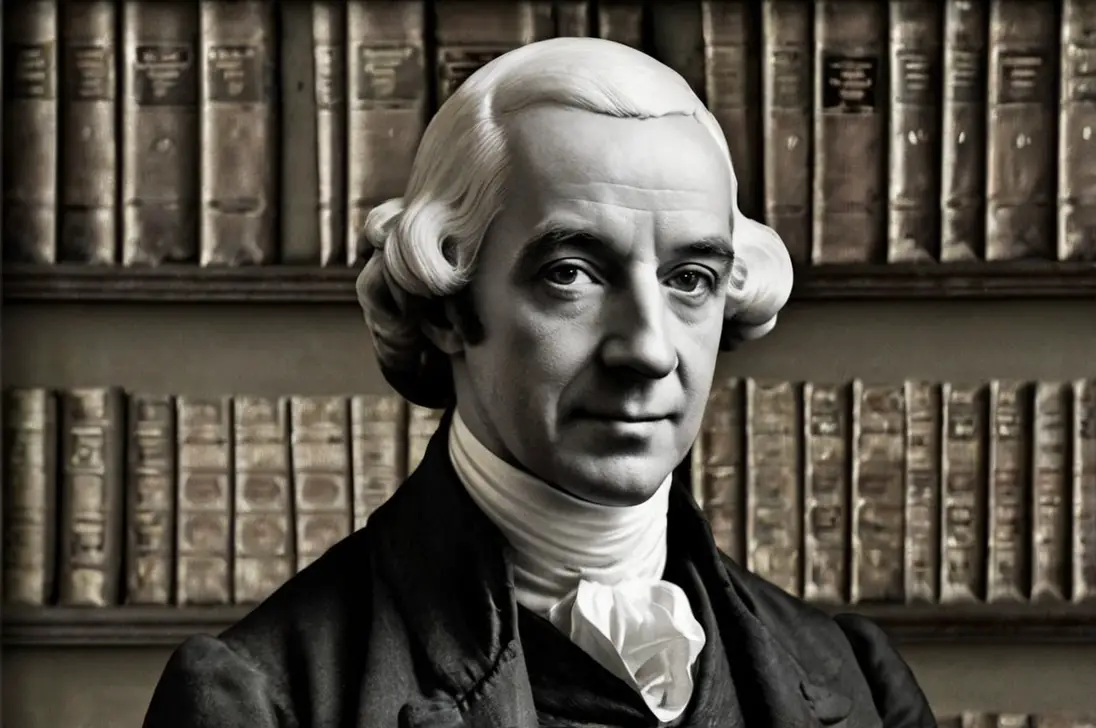
The Scottish Enlightenment, a period spanning the 18th century, was a remarkable era of intellectual and cultural growth.
Scotland became a hub for new ideas in philosophy, economics, science, and literature.
What makes this movement stand out is the sheer number of influential thinkers who emerged from it, profoundly impacting the modern world.
In this article, we’ll explore the lives and contributions of some of the most famous Scottish Enlightenment thinkers.
We’ll also look at the enduring legacy of the Scottish Enlightenment and how it continues to shape contemporary thought.
Famous Scottish Enlightenment Thinkers
The Scottish Enlightenment was characterized by a focus on reason, empirical evidence, and a desire to improve society through knowledge.
Let’s dive into the lives and ideas of the key figures who spearheaded this intellectual revolution.
David Hume

David Hume (1711-1776) was one of the most important philosophers of the Scottish Enlightenment, and his work continues to influence contemporary thought.
Hume is best known for his skepticism and empiricism, challenging the prevailing ideas of his time.
His “A Treatise of Human Nature” (1739) sought to understand human psychology through an empirical approach, laying the groundwork for modern cognitive science.
Hume argued that our beliefs and knowledge stem from experience, rather than reason alone.
His ideas about causality and the nature of human understanding have shaped fields ranging from philosophy to psychology.
Hume’s thoughts on religion, particularly his critique of the argument from design, were groundbreaking and continue to spark debate.
- Read also: Breaking Barriers: 9 Women Philosophers in the Enlightenment Era
- Read also: The Age of Enlightenment vs. the Scientific Revolution: A Tale of Two Revolutions
Adam Smith
Adam Smith (1723-1790) is often referred to as the father of modern economics, but his influence extends far beyond economics.
His seminal work, “The Wealth of Nations” (1776), laid the foundations for the study of economics as we know it today.
Smith introduced the concept of the “invisible hand,” arguing that individuals pursuing their self-interest unintentionally contribute to the overall good of society.
Smith was also a moral philosopher, as seen in his earlier work, “The Theory of Moral Sentiments” (1759).
He explored the nature of sympathy, the role of virtue, and the foundations of moral judgment.
Smith’s ideas on free markets, division of labor, and capitalism have profoundly impacted economic policies worldwide.
Robert Wallace
Robert Wallace (1697-1771) may not be as well-known as some of his contemporaries, but his contributions to Enlightenment thought are significant.
Wallace was a minister and a thinker deeply concerned with population growth and its implications for society.
His work, “Various Prospects of Mankind, Nature, and Providence” (1761), is considered one of the first works to explore the concept of overpopulation and its potential consequences.
Wallace’s ideas influenced later thinkers, including Thomas Malthus, who famously expanded on Wallace’s ideas in his own work on population growth.
Wallace also engaged in discussions on economics, politics, and the role of government, advocating for social reforms and improvements in the welfare of the poor.
Francis Hutcheson

Francis Hutcheson (1694-1746) was a philosopher who played a pivotal role in the development of the Scottish Enlightenment.
Known as the “Father of the Scottish Enlightenment,” Hutcheson was a professor of moral philosophy at the University of Glasgow and influenced many of his students, including Adam Smith.
Hutcheson is best known for his theory of the “moral sense,” arguing that humans have an innate ability to perceive moral good and evil.
He believed that moral judgments are based on feelings of approval or disapproval, rather than reason.
Hutcheson’s ideas about ethics, human nature, and the role of happiness in moral decisions laid the groundwork for later utilitarian thought.
Thomas Reid
Thomas Reid (1710-1796) was a philosopher who founded the Scottish School of Common Sense, a reaction against the skepticism of David Hume.
Reid believed that common sense and direct experience are the foundations of knowledge.
His work, “An Inquiry into the Human Mind on the Principles of Common Sense” (1764), challenged the idea that human perception is unreliable.
Reid’s philosophy emphasized the reliability of our senses and the existence of an objective reality.
His ideas have had a lasting impact on epistemology and the philosophy of mind, influencing later philosophers like G.E. Moore and the development of analytic philosophy.
Dugald Stewart
Dugald Stewart (1753-1828) was a philosopher and professor at the University of Edinburgh, where he continued the tradition of the Scottish Enlightenment.
Stewart is known for his work in moral philosophy and political economy. He popularized the ideas of his predecessors, such as Adam Smith and Thomas Reid, through his lectures and writings.
Stewart’s “Elements of the Philosophy of the Human Mind” (1792) sought to integrate the ideas of his predecessors into a comprehensive understanding of human thought and behavior.
He also wrote extensively on political economy, advocating for free trade and economic reform.
James Hutton

James Hutton (1726-1797) was a geologist whose work laid the foundation for modern geology.
Hutton’s “Theory of the Earth” (1788) introduced the concept of deep time, arguing that the Earth was much older than previously thought.
His idea that geological processes observed in the present have been shaping the Earth for millions of years was revolutionary.
Hutton’s work challenged the prevailing belief in a young Earth and provided a scientific basis for understanding the planet’s history.
His ideas about uniformitarianism, the principle that the same natural laws and processes operating in the past continue to operate today, remain fundamental to geology.
Legacy of the Scottish Enlightenment
The Scottish Enlightenment, which flourished in the 18th century, had a profound impact on the world and continues to shape many aspects of our lives today.
Here’s a closer look at its significance:
Influence on philosophy and political theory
Scottish thinkers like David Hume and Adam Smith revolutionized philosophy and political theory.
Hume’s work focused on understanding human nature and the limits of human knowledge, while Smith’s ideas laid the groundwork for modern economics with his book “The Wealth of Nations.”
Their emphasis on reason and evidence-based thinking helped shape modern liberal democracy and political thought.
Advancement of science and the scientific method
The Scottish Enlightenment was a period of great scientific advancement.
Figures like James Hutton, who is often considered the father of modern geology, contributed to the scientific method—a way of learning about the world through observation, experimentation, and logical reasoning.
This approach to science has become fundamental to how we understand and explore the natural world today.
Development of capitalism
Adam Smith’s ideas about free markets and the benefits of competition are foundational to modern capitalism.
His work argued that individuals pursuing their own interests can lead to economic benefits for society as a whole.
This concept influenced the development of capitalist economies and continues to be a major topic in economic discussions.
Impact on modern democratic values
The ideas from the Scottish Enlightenment also played a key role in shaping the American and French Revolutions.
The principles of liberty, equality, and fraternity—central to these revolutions—were inspired by Enlightenment thinkers.
These ideas have had a lasting effect on the formation of democratic societies and their values.

- Read also: Enlightening the World: The Lasting Impact of the Age of Enlightenment
- Read also: A Journey Through the Evolution: History of Science and Technology
Conclusion
The Scottish Enlightenment was a period of extraordinary intellectual growth that produced some of history’s most influential thinkers.
From David Hume’s skepticism to Adam Smith’s economic theories, these figures laid the groundwork for many aspects of modern thought.
Their legacy lives on in the principles of reason, inquiry, and progress that continue to shape our world today.



